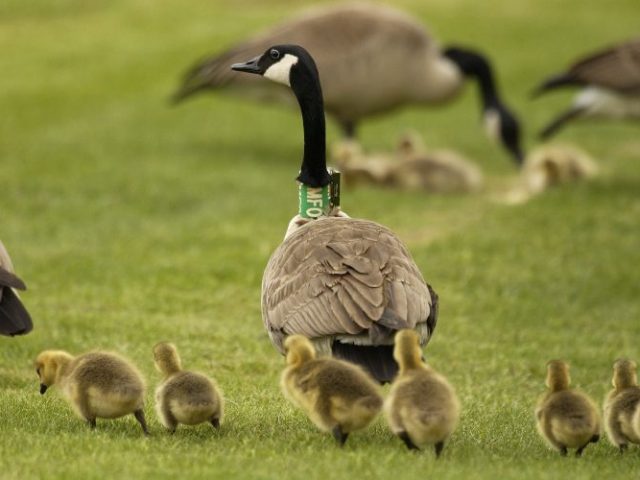Geese Populations Impact Michigan Water Quality

Canada geese populations in Michigan have increased significantly after being nearly extinct in the mid-20th century. The state now has around 280,000 geese. While they were once migratory, climate change has led many to stay year-round due to milder winters. This shift, combined with human-created environments like man-made ponds and mowed lawns, has resulted in geese overpopulating urban areas.
Goose droppings contain high levels of phosphorus and nitrogen, which contribute to environmental problems. These nutrients fuel harmful algal blooms in water bodies, which can harm aquatic life by depleting oxygen and releasing toxins. Goose feces also pose a potential health risk due to bacteria and parasites, though the risk to humans is low unless they handle the waste.
In response, Michigan wildlife managers and businesses like Goose Busters use various methods to control the population, including egg destruction and dog scare tactics. Hunting is permitted under strict regulations. Michigan residents can deter Canada geese by planting tall grasses along water bodies, which has the added benefit of filtering bacteria and pollutants out of the groundwater before it reaches our rivers and lakes.
You can read the full story on Great Lakes Echo.
